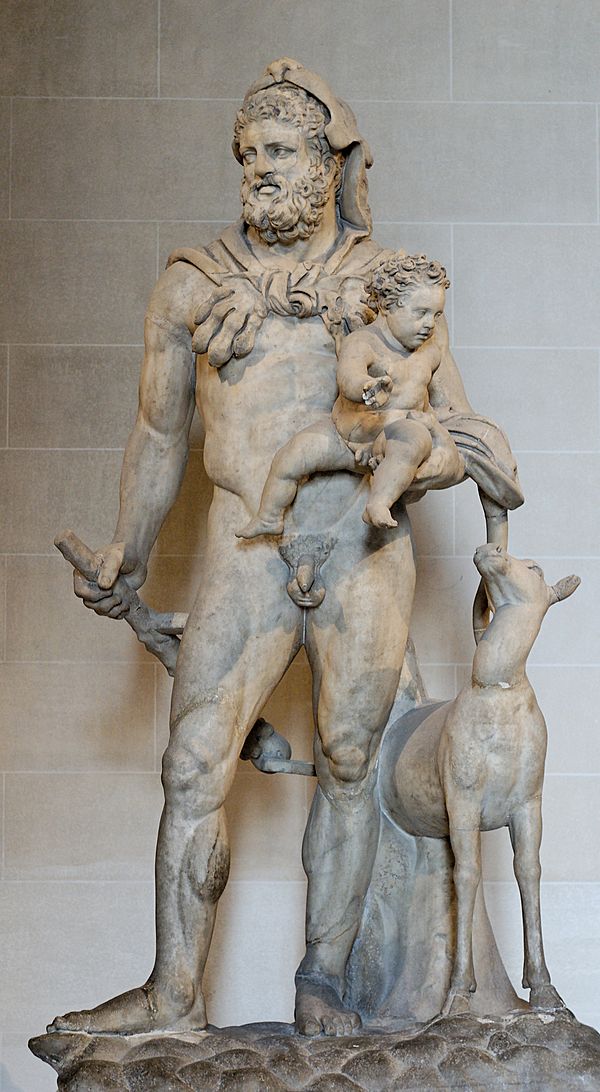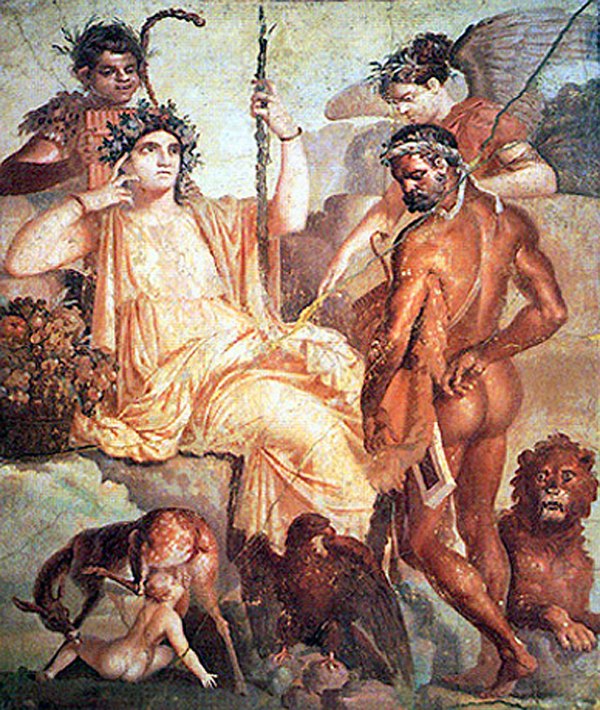Telephus
Videos
Page
In Greek mythology, Telephus was the son of Heracles and Auge, who was the daughter of king Aleus of Tegea. He was adopted by Teuthras, the king of Mysia, in Asia Minor, whom he succeeded as king. Telephus was wounded by Achilles when the Achaeans came to his kingdom on their way to sack Troy and bring Helen back to Sparta, and later healed by Achilles. He was the father of Eurypylus, who fought alongside the Trojans against the Greeks in the Trojan War. Telephus' story was popular in ancient Greek and Roman iconography and tragedy. Telephus' name and mythology were possibly derived from the Hittite god Telepinu.

Heracles with the infant Telephus and deer, mid second century AD. Paris, Louvre MA 75.

Heracles finds Telephus suckled by a deer, with Arkadia, Pan and a winged Virgo looking on, first century AD. Naples, National Archaeological Museum 9008.

Marble statue of Hercules holding baby Telephus in his arms. Ancient Roman copy from a Greek original of 4th century BC. Found in the 16th century in Campo de’ Fiori in Rome. it:Museo Chiaramonti, the Vatican

Achilles; ancient Greek polychromatic pottery painting (dating to c. 300 BC)
Greek mythology
Videos
Page
Greek mythology is the body of myths originally told by the ancient Greeks, and a genre of ancient Greek folklore, today absorbed alongside Roman mythology into the broader designation of classical mythology. These stories concern the ancient Greek religion's view of the origin and nature of the world; the lives and activities of deities, heroes, and mythological creatures; and the origins and significance of the ancient Greeks' cult and ritual practices. Modern scholars study the myths to shed light on the religious and political institutions of ancient Greece, and to better understand the nature of myth-making itself.

Achilles and Penthesileia by Exekias, c. 540 BC, British Museum, London

Prometheus (1868 by Gustave Moreau). The myth of Prometheus first was attested by Hesiod and then constituted the basis for a tragic trilogy of plays, possibly by Aeschylus, consisting of Prometheus Bound, Prometheus Unbound, and Prometheus Pyrphoros.

The Roman poet Virgil, here depicted in the fifth-century manuscript, the Vergilius Romanus, preserved details of Greek mythology in many of his writings.

Phaedra with an attendant, probably her nurse, a fresco from Pompeii, c. 60 – c. 20 BC